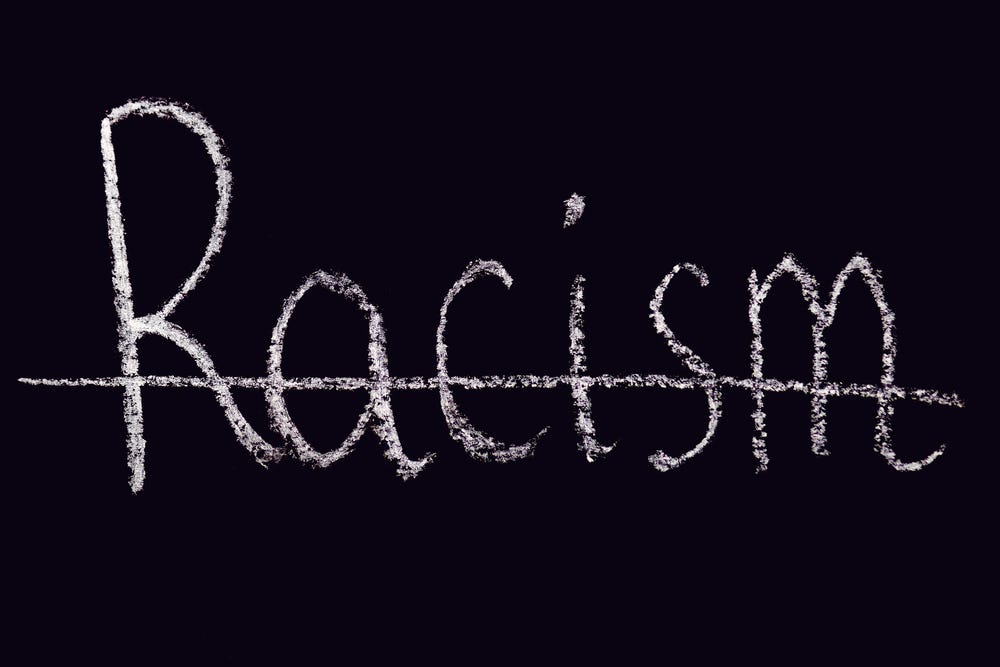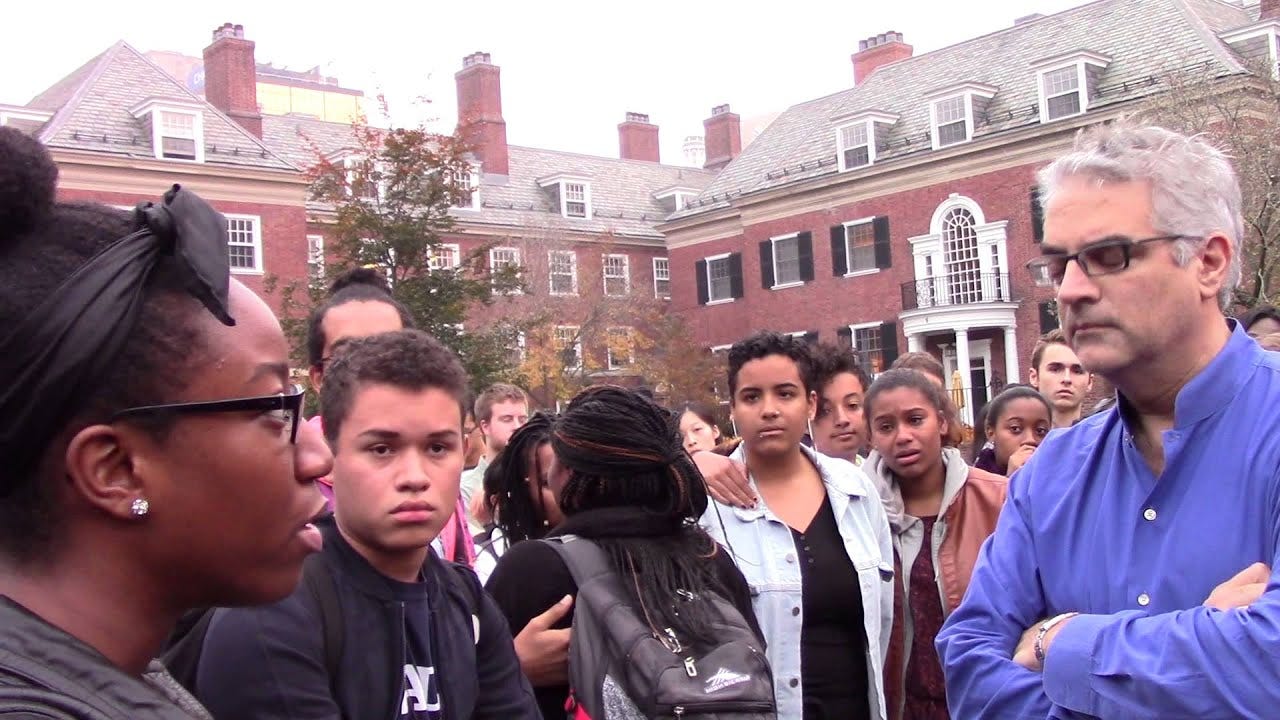E-Pluribus | July 12, 2021
Defenses of Anti-CRT bills expose their problems, is CRT the wrong term for our illiberal moment, and the difference between liberals and leftists.
A round up of the latest and best writing and musings on the rise of illiberalism in the public discourse:
David French: Even the Defenses of Anti-CRT Speech Codes Show the Problems With Anti-CRT Speech Codes
The debate over whether Critical Race Theory (CRT) should be taught in public schools (and also what exactly CRT means) continues. At The Dispatch, David French responds to the responses to a recent New York Times piece he co-authored opposing state bills that aim to ban the teaching of CRT.
The defenses of anti-CRT laws are time and again running aground on the rocky shoals of ... the actual anti-CRT laws. Welcome to the incredible difficulty of drafting speech codes. For decades, some of the smartest minds in higher education, Big Tech, and elsewhere have been trying hard to draft laws that ban the ideas they don’t like without sweeping too broadly or creating unintended consequences.
The allure is obvious. If we have the power to ban harmful speech, why not ban harmful speech? But the execution is always clumsy and dangerous if it’s broad, and narrow to the point of irrelevance if it’s precise. Another National Review pal, Ramesh Ponnuru, put things well in his own contribution to the debate in Bloomberg. “But regulation can be defensible in principle,” he says, “without a particular regulation being wise in practice. Some of the provisions in these bills are vague and sweeping.”
Yes, yes they are. But then Ramesh makes this vital point: “The more precisely these laws are written, though, the less they will proscribe and the easier they will be to evade.”
Yup. And that’s exactly why I circle back to my proposal—better curriculums and civil rights litigation. Thus you give teachers the confidence to teach something concrete and real without creating a fear that even their own course materials might suddenly be illegal.
Read it all here.
Matt Taibbi: Is “Critical Race Theory” the Wrong Term?
Sticking with the CRT debate, Matt Taibbi recently interviewed fellow Substacker Wesley Yang about how conservatives outraged over CRT are focusing on the wrong source of today’s illiberal movement that’s plaguing American institutions. Here is the intro to the interview:
The war over “Critical Race Theory” in this sense has become a political marketing campaign that’s uniquely double-edged in its cynicism. Democrats are pretending they don’t know what the fuss is all about. Republicans are pretending there isn’t a dog whistle in their backlash campaign. At the center of it all is the concept itself, which does exist but is much broader, and both more interesting and more frightening, than the narrow race theory that has Republican politicians in maximum wig-out mode.
Two years ago, writer Wesley Yang penned a series of tweets about the “new language of power throughout the non-profit sphere,” giving it a name: the “Successor Ideology.” The author of The Souls of Yellow Folk created an umbrella term to explain everything from whatever the hideous moniker “cancel culture” means to purges of classics and STEM disciplines in universities, to the new move toward segregated “affinity spaces,” to “intent doesn’t matter,” to the spread of workforce training sessions that ask white employees in both the public and private sectors to focus on things like “undoing your own whiteness,” to a dozen other things.
Conversely, a wide variety of oppositional theologies, of varying degrees of eccentricity, have become allied in a unified front of negation:
What Yang went on to describe in a series of articles and appearances isn’t narrowly about race, or trans issues, or feminism, or American history, but a much wider concept that argues that our foundational notions about everything are wrong and need to be overturned. Conversely, as Yang writes, a wide variety of oppositional theologies, of varying degrees of eccentricity, have become allied in a unified front of negation:
From eco-feminism to Carlos Castenada to Carol Gilligan to German Romanticism, there isn't a single woolly-headed critique of Western philosophy that isn't thrown willy-nilly into this stew and presented as authoritative, despite the obvious internal inconsistency.
The movement Yang describes is strategically brilliant and substantively moronic, a perfect intellectual killing machine. The Successor Ideology has blown through institutional America with great speed, coming to dominate everything from academia to the news media to Silicon Valley almost overnight.
Attempts by conservatives or even critics on the left to question any of this are usually described in news accounts as efforts to clamp down on something uncontroversially right and necessary, e.g. “educational discussions about race.” This ignores the fact that the movement seems also to be about things like ending blind auditions for orchestra applicants, or redefining mathematics to discourage a focus on “getting the right answer,” to classics teachers canceling the classics, and many other bizarre things.
In some instances it pleases intellectuals to argue that all of these things are and must be connected — that the opponent of police brutality must also stand in opposition to everything from the Harper’s Letter to the young adult novels of Amélie Zhao and EE Charlton-Trujillo. Sometimes, as in the case of the response to latest Republican backlash, the argument is not only that none of these things are connected, but that there’s nothing to connect. Which view is right?
Read the full interview here.
Nathan Allebach: What's the Difference Between Liberals and Leftists?
At PLURIBUS, we use terms like liberal and illiberalism a lot in the general sense to refer to whether someone embraces open discourse and debate or shows a willingness to peacefully coexist with those with different worldviews. What we really mean might be closer to “classical” liberalism. But in the U.S. especially (as we have learned from many replies we’ve received on Twitter), liberal has become a shorthand for left-wing or left-of-center. Some on the right even interchange liberalism with socialism, communism, and Marxism. But it’s also worth noting that left-leaning American “liberals” differ in many ways from leftists. At Arc Digital, Nathan Allebach provides a useful explainer to distinguish modern liberalism from leftism.
Through a social lens, liberals can be moderately progressive to radically progressive. Frameworks like feminism or intersectionality are frequently used by liberals to analyze issues through identity traits like race, gender, class, and geography. That said, there are also reactionary liberal contingents, such as gender-critical feminists and cultural critics who pump the brakes on what they perceive to be excesses of progressivism, without going as far as conservatives in their rejection of identitarianism. Democrats on the center-left often align with conservatives on issues like foreign policy, policing, or fracking as well. Though it sounds paradoxical, there are even illiberal liberals, or perhaps it would be more accurate to say liberals who are illiberal about certain fundamental elements of liberalism, e.g., social liberals who favor restrictions on speech to an extent that it complicates their ability to genuinely maintain that they believe in the importance of free speech.
In terms of ethos, liberals embody incrementalism, reform, pragmatism, and compromise. Their antithesis is the revolutionary or accelerationist impulse. Liberals emphasize gradual progress, they typically value consensus building, and they base policy decisions on what’s popular or feasible at a given time. Liberals are likely to applaud corporations, institutions, and media for increasing their inclusivity of minority groups, though they are perhaps the least capable of detecting that the symbolic gestures these entities offer are only just marketing ploys or PR campaigns. Inspirational messaging like Obama’s “Yes We Can” is meaningful to liberals because an underlying tenet of liberalism of the current variety is that progress doesn’t merely—or even principally—come about via systemic change, but rather follows cultural attitudes.
[ . . . ]
Through a social lens—which, under leftism, cannot meaningfully be separated from the economic lens—leftism’s goals sometimes overlap with progressive forms of liberalism. Not always, though—leftists and some socially progressive liberals might agree on, say, criminal justice reform, but they will tend to disagree on whether class or race is the most salient analytical input for advancing justice. Focusing on building class consciousness as opposed to engaging in what they sometimes deride as “performative activism,” leftists prefer to address material conditions rather than whatever symbolic changes end up being prescribed by a concern over racial “identity politics.” This is because leftists believe racial identity politics can be easily addressed without oppressed people gaining much of anything at all; corporations and institutions are able to play-act as though they are pursuing social reform but, according to the leftist, in the end it’s just a vacuous branding exercise. Minority representation doesn’t mean much if the system is exploitative through and through. There are also reactionary leftists such as parts of the “dirtbag left,” areas where left-wing and right-wing populism overlap, as well as authoritarian contingents that are pejoratively referred to as tankies.
In terms of ethos, leftists fundamentally view the world through the frame of power dynamics, such as anti-imperialism, anti-colonialism, anti-hierarchy, and class conflict between workers and owners. They believe the systems in place are corrupted by capital. This totalizing framework is why ideas on this side take on a similar form: like “ACAB” (all cops are bastards) or decrying “lesser of two evils” reasoning during elections. They believe the clock is ticking on addressing matters like climate change, economic devastation, and the forward march of fascist regimes—liberals sometimes do too, but leftists see a greater urgency, which is one reason why they push for more immediate, more radical, solutions. If we’re operating with a simple binary of liberal or illiberal social configuration, many leftists will endorse tenets of philosophical liberalism (such as democracy), but they’ll believe social liberalism on its own will inevitably fail to defend them. Leftists believe in philosophical liberalism’s commitment to equality, but they think that this way of ordering society can easily fall into oligarchy and produce widespread social alienation. Some leftists also reject the liberal ethos of civil discourse or so-called respectability politics. To them, certain ideas that serve the goals of capitalists, fascists, and racists shouldn’t be debated and instead should be mocked, deplatformed, or violently fought—since to treat them politely is to grant them respectability, which in turn is to pave the way for their ability to harm.
Read more here.
Around Twitter
Thomas Chatterton Williams responds to those saying those who signed the Harpers Letter are hypocrites on the current CRT debates:
Counterweight interviews Steven Pinker:
Cathy Young on supposed “hate speech” against police officers:
A conservative case for liberal education:










